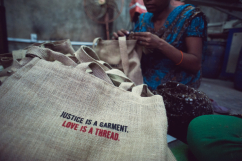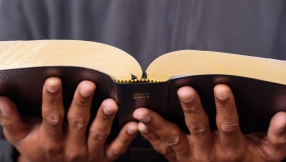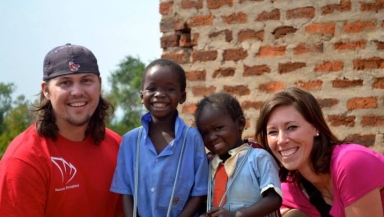
About a month into volunteering at an orphanage in Nairobi, Kenton Lee discovered a pressing need: shoes. Walking to church one day, he noticed a young girl who had cut off the front of her shoes to allow her toes to poke through, and realised many of the other children had done the same.
After speaking to the orphanage director, Lee discovered that a shipment of donated shoes had arrived about a year before, but none since. With no money to purchase new ones, the children had to be resourceful and some were forced to go without any footwear at all. With dirty streets and poor sanitation, they were prone to getting cuts and scratches that often became infected, forcing them to miss school and fall behind.
It was then that the idea for 'The Shoe That Grows' began to form. "I thought, wouldn't it be nice for them to have shoes that could adjust and expand?" Lee told Christian Today. "That was the spark."
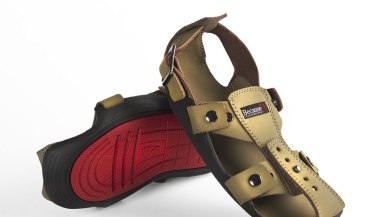
A few years later, in 2006, Lee and a team of friends founded Because International, a non-profit organisation dedicated to "working with and helping those in extreme poverty". They designed a shoe made of soft leather on top, and durable rubber soles to withstand rough terrain and child's play. They come in two sizes, small and large, which each expand using a system of buckles and snaps to grow five sizes, meaning one pair can last a child several years.
The team don't distribute the shoes themselves, but instead partner with churches, mission groups and those already working with poor children. Anyone can buy a pair for $10 and help fill a duffle bag to give away to organisations such as the Haiti Evangelical Mission and Expansion International in Kenya. Having gained publicity in recent weeks, however, Lee says he's received emails from people all over the world wanting to partner with him, and an online fundraiser has now reached over $98,000 – far exceeding the original $50,000 target. "If people feel like our shoes would make sense where they're working, then we love connecting with them," he says.
"We want to help put kids in the best possible position to succeed. We know that shoes will not solve every problem in their lives, but we hope it will make them that much healthier, and that much happier."
Meeting real need is something that Lee feels strongly about. Having gone on multiple mission trips, he says there's a danger of Christians taking part in 'poverty tourism' and not really engaging with the issues at hand. He says he's probably been guilty of it himself in the past, but spending a year in Ecuador and Kenya developing real relationships with those in need changed the way he looks at mission.
"It's wonderful for people to help people, whether that's locally or internationally, and I never want to discourage that," he says. "Even if people don't know the right way to help, it's important that they try and I want to value that."
But the key, he explains, is motive – especially when it comes to sharing photos of these trips on social media. "We need to get to the point where people check their heart, check their motivation, and ask why they are doing it. Is it just to take a great selfie to put on Facebook, or do they want to take a fun picture with a new friend?"
Sharing our lives online is a part of our culture, but Lee says it's vital to recognise that real relationships are what's more important. "I'm a gigantic proponent of friendship first and foremost, whether locally or internationally. Becoming friends with those you are serving and helping...that's ultimately the best way to do it," he says.
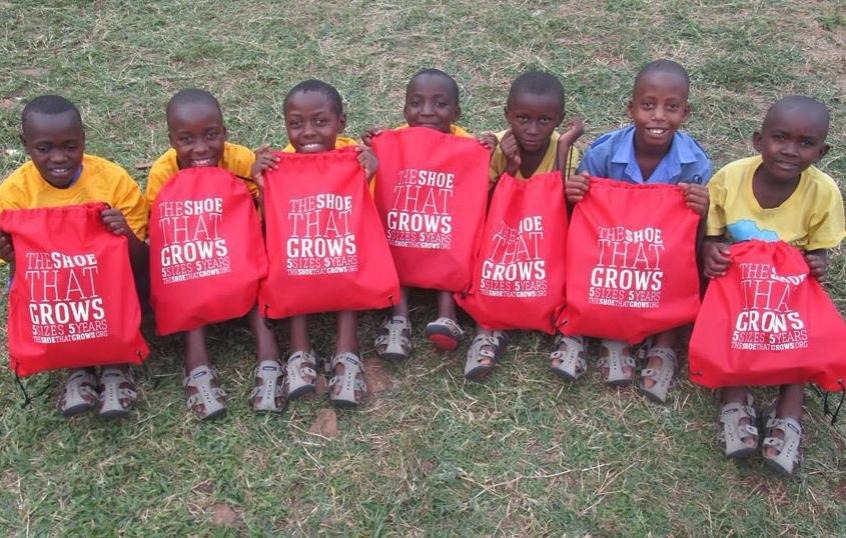
He carries this attitude at home, as well as abroad, in Idaho, where he lives with his wife. They set up a church together two years ago, the Table Church of the Nazarene, which first met in their home and now, having grown, meets in a rented facility nearby. They see the two ministries as interconnected, though Lee laughs that he hasn't tried to "shove [The Shoe That Grows] down the throats" of his congregation.
Both the non-profit and his work as a pastor are an extension of his faith and who he is, he says. "I really enjoy doing practical work for local ministry with the church, and internationally...My personality and mission in life is that I'm a simple, normal guy who wants to help people with practical things that impact their daily lives. So the church allows me to do that, and The Shoe That Grows allows me to do that."
"I was never the one who had all the answers, or the one who was going to be in the United Nations," he laughs. Lee thought about becoming a missionary after college but missed home too much, and was just looking for a way to be "practical with my compassion" without living abroad.

"I don't think I'm going to be a Bill Gates, or a Nelson Mandela, or anyone like that, but I can still help the people that I see right around me; that's where the idea started with the shoes," he says.
"I saw a need, and I try to have the same attitude locally with the church – we want to do simple things for the people right around us. We can't solve every problem in our city or state, but for our neighbours and friends that we see every day, we want to help them."
This attitude is modelled on the way Jesus lived, Lee explains. "I love his simplicity. He had world changing messages and did incredibly profound things – all kinds of miracles – but in many ways he did it simply. He took a very complicated faith that Israel had through the Pharisees and made it simple.
"I don't have to be a Billy Graham, I can be Kenton, and help the people right around me with the practical need that I see."











